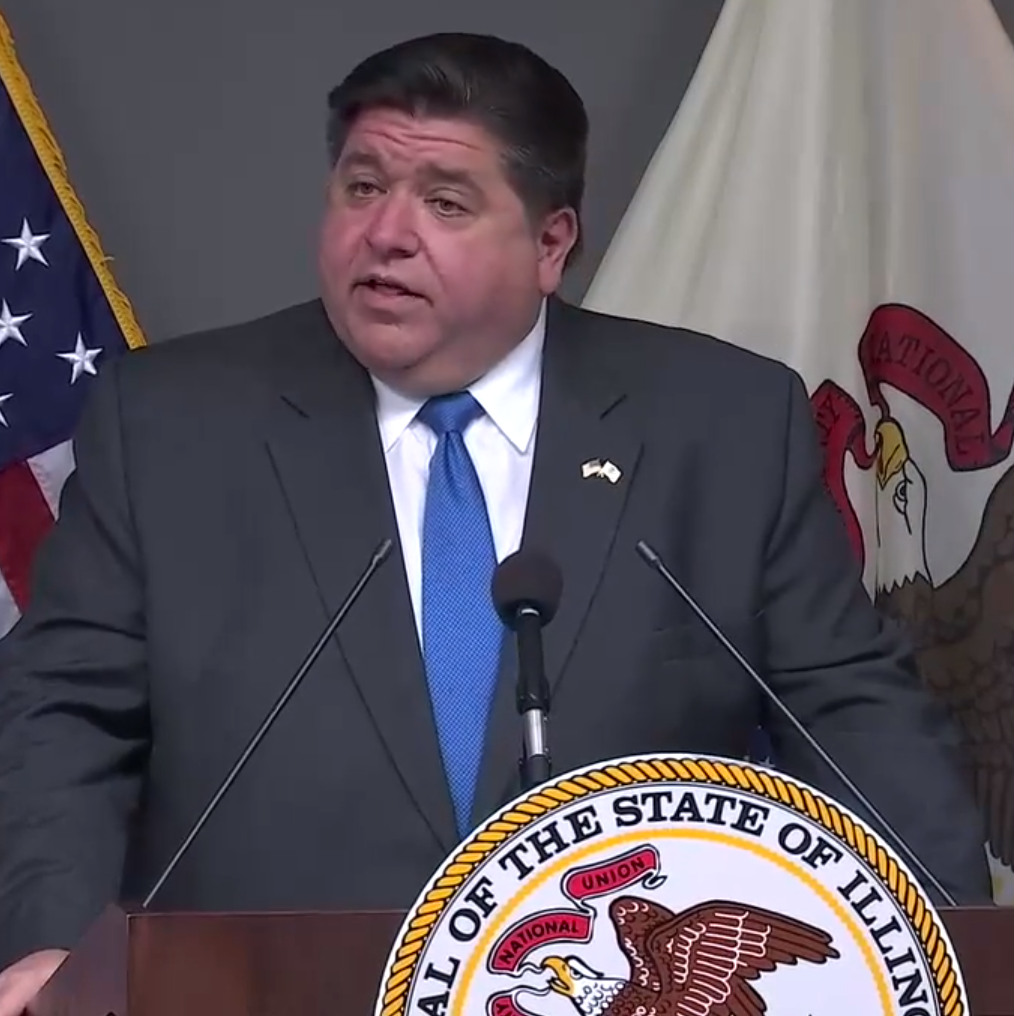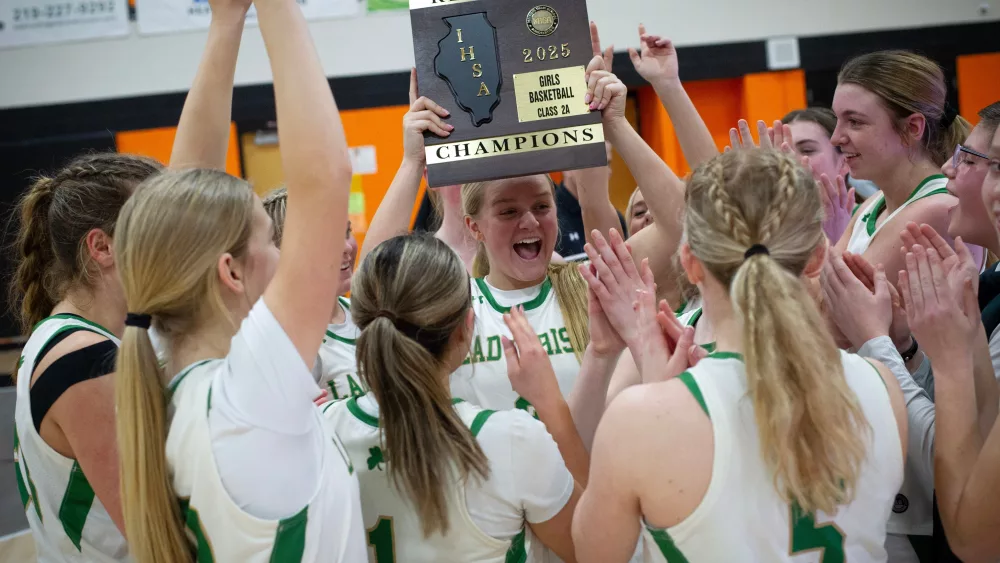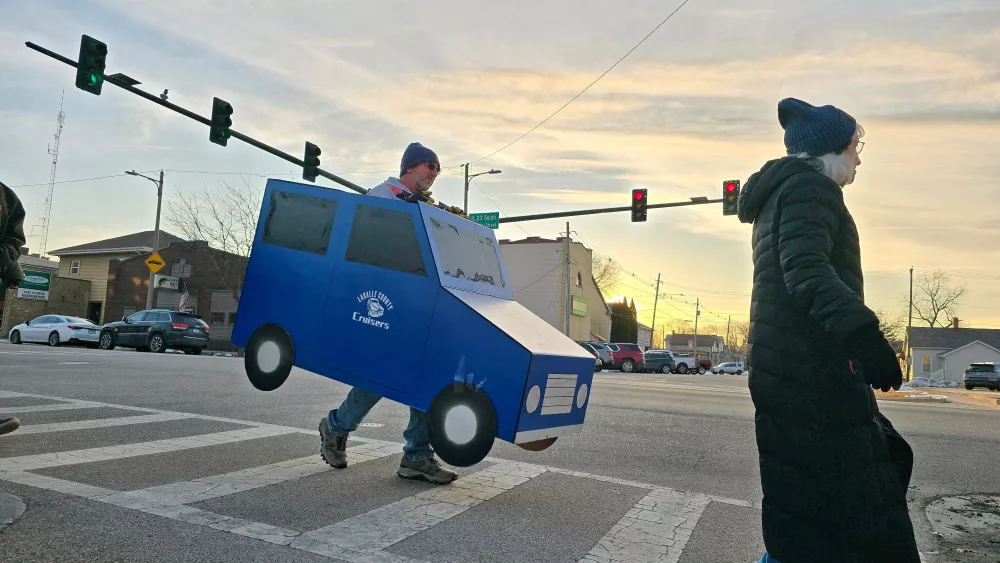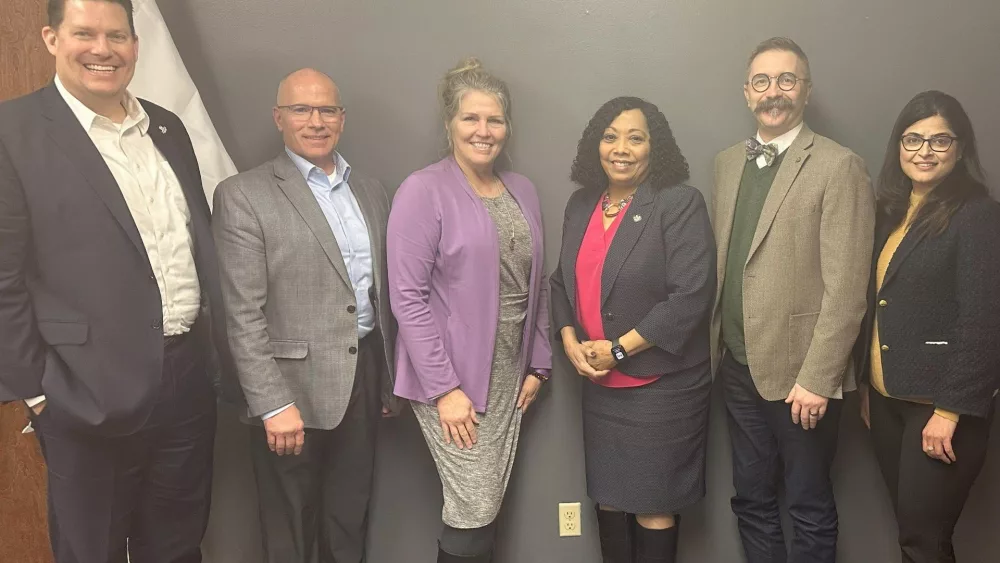
SPRINGFIELD – Governor J.B. Pritzker announced on Friday, new investments by the State of Illinois to help more small businesses access federal COVID-19 emergency programs. The Illinois Department of Commerce and Economic Opportunity (DCEO) will direct a $3.4 million investment to expand community navigator outreach programs and technical assistance services provided through the State’s Small Business Development Centers (SBDCs). These investments are designed to help more businesses take advantage of billions of dollars of financial assistance recently made available through the renewed Paycheck Protection Program (PPP), and with other federal programs set to launch in the coming weeks.
The state’s plans to help more Illinois small businesses will build on the successful community navigator outreach model piloted during the Business Interruption Grants (BIG) program – the largest in the nation business recovery program which directed an historic $275 million to nearly 9,000 small businesses across the state – including a record number of grants for minority-owned businesses.
“Last week, the federal government’s Paycheck Protection Program, or PPP, reopened with another $280 billion in forgivable loans – offering another opportunity for small businesses to unlock emergency funds – but we know from past rounds that the federal PPP has presented tremendous barriers for some businesses,” said Governor JB Pritzker. “I’ve directed my administration to provide community navigators through our Small Business Centers to work directly with our small business owners, helping them access the dollars they deserve – with a special focus on businesses who haven’t received aid from the state, because we know the need is still so great. Even as we focus on vaccine administration and public health mitigations, we must also build toward economic recovery by helping job creators survive and thrive as we work to overcome this pandemic.”
New investments will guide an equity-based approach to reaching small businesses with the greatest needs – with outreach prioritizing minority-owned businesses, businesses in economically-disadvantaged communities, as well as those which have yet to receive financial assistance. These investments will help address unique barriers faced by very small and minority-owned businesses as reported on from earlier rounds of the PPP, including difficulties navigating systems and submitting documents required to quickly unlock emergency aid.
The passage of additional federal COVID-19 stimulus by Congress in December 2020 provides several new and extended financial assistance programs to help small businesses. This includes a $284 billion extension of PPP, which began accepting applications from lenders as of last week. The latest round of funding includes set asides that will benefit minority-owned businesses, rural businesses, and micro-businesses by providing dedicated funds for the smallest businesses, the lending institutions that serve these businesses, and businesses located in low-and moderate-income communities.
Additionally, in the coming weeks, more than $35 billion will be made available to small businesses through the Economic Injury Disaster Loan (EIDL) Advance as well as the new Shuttered Venue Operators (SVO) grant programs. For more on eligibility for these programs, visit the U.S. Small Business Administration website.
“Our small businesses are critical to the strength of our Illinois economy, and DCEO is committed to helping businesses access sustained support needed to weather this storm,” said DCEO Director Erin Guthrie. “Under Governor Pritzker’s leadership, the historic BIG program provided over 9,000 grants and yielded record relief for our minority communities. While the state is making crucial progress with administering the vaccine and toward a public health recovery, we know that more assistance will be required for small businesses as we now approach an economic recovery. To help address the overwhelming needs still out there, we are doubling down on our successful community navigator model and providing technical support on applications to reach more businesses who traditionally haven’t had access to these programs.”
Beginning immediately, small businesses seeking PPP and other assistance can take advantage of these new and expanded supports from the state:
SMALL BUSINESS DEVELOPMENT CENTERS
DCEO will mobilize $2.4 million in supplemental CARES Act dollars to boost capacity of the Small Business Development Center program – a statewide network of community-based centers with 42 locations statewide. Illinois is home to one of the largest networks of small business development centers in the country – with locations offering an array of services including: 1:1 business advisory services, counseling, and technical assistance with applying to grants.
New investments will allow the SBDCs to expand outreach and professional business services from all 42 locations, including hiring advisors to focus specifically on helping businesses navigate emergency aid programs. SBDCs continue to build relationships with community groups and organizations outside business support networks to reach businesses that may be traditionally isolated from assistance.
Outreach and assistance through the SBDCs and community navigator partners helped the state achieve its aggressive equity goals under the BIG program, resulting in 40 percent of awards reaching minority business owners, 80 percent of awards reaching very small businesses under $1 million in annual revenues and nearly 50 percent to communities disproportionately impacted by the COVID-19 pandemic.
“SBA’s COVID relief programs are a lifeline for Illinois small businesses,” District Director for the U.S. Small Business Administration’s Illinois District Office Robert Steiner said. “The collaboration with the State of Illinois ensures our small business community, so critical to our economy, has the support they need to access vital financial resources through SBA and other programs. We are committed to supporting the businesses and non-profits hardest hit by the pandemic, especially those that face barriers to access capital. This partnership furthers those efforts and gives our small business community the tools to navigate these uncertain times.”
Through the CARES Act, the SBA provided funding to Small Business Development Centers in March to expand services to small businesses and nonprofits throughout the pandemic. The additional investment by the State of Illinois will amplify those efforts and provide all small businesses and nonprofits with access to relief programs.
Since the pandemic began, Illinois’s SBDCs have assisted nearly 1,000 small businesses in receiving over $78 million in emergency relief across federal, state, and local programs. This follows on a $19 million investment by the state in SBDCs to open seven new centers, located in predominantly minority communities. Overall, 19 of 42 centers are in predominantly-minority communities. SBDCs are accessible to all businesses at no cost and provide assistance in over a dozen languages. To learn more about SBDCs or to find a SBDC location available near you, please visit DCEO’s webpage.
COMMUNITY NAVIGATOR MODEL OUTREACH
New investments in SBDCs will leverage the success of the community navigator outreach model developed through the BIG program – which deployed a dozen community partners to help reach a record number of minority-owned businesses with state administered grants. A $1 million investment that began with the BIG program is being extended to support grassroots outreach in communities across the state – prioritizing low-income, majority minority communities and businesses still in need of critical support though COVID-19 programs – to connect business owners with dedicated assistance to access PPP and other new programs to come.
“Businesses that tend to benefit from government programs are sophisticated, well-resourced firms with accountants and attorneys,” said Rebecca Shi, Executive Director of IBIC. “Meanwhile, poor, less capitalized, un-banked or under-banked, isolated geographically or linguistically are left out. Thanks to the leadership of Governor Pritzker, Illinois is doubling down on support for the smallest and most vulnerable communities with an expanded community navigator model. These investments will ensure that critical funding reaches the over 80 percent Black, Brown and immigrant owned businesses that did not receive the PPP in earlier rounds.”
Community navigators operate through a hub and spoke model that partners established business support organizations with community groups that can reach businesses where they are at and help businesses often isolated from government resources understand the unique criteria and documents required of various programs. Lead navigators include: The Resurrection Project, The Illinois Business Immigration Coalition, The Chicago Urban League, and the Greater Auburn Gresham Development Corporation in partnership with eight other local community groups. During the BIG program, community navigators reached nearly 30,000 small businesses, which contributed to more than $88 million or 3,600 total grants awarded to minority-owned businesses.
“Thanks to Governor Pritzker, resources administered by the Illinois Department of Commerce & Economic Opportunity allowed community-based organizations like GAGDC to provide technical assistance and outreach for the Business Interruption Grant to small businesses,” said Carlos Nelson, Executive Director of the Greater Auburn Gresham Development Center. “This pivot to PPP Outreach allows for a continuation of efforts to get critical lifeline support to small businesses burdened by the pandemic.”
“I’m thrilled that I was able to get in touch with The Resurrection Project, who helped me prepare to submit and become approved for a grant as part of the life-saving BIG program,” said Jose Roacho, Owner of Roacho Signs in Chicago’s McKinley Park neighborhood. “The entire TRP team was helpful and friendly from the very beginning and walked me through the entire application process. Because of the BIG program, I feel blessed to know that I’ll be able to keep my printing business operating for the next several months.”
Community navigators will work in collaboration with DCEO’s Office of Regional Economic Development (RED) and Office of Minority Economic Empowerment (OMEE), to conduct a statewide outreach campaign including webinars, technical assistance sessions, and customer service for those seeking PPP and other federal programs. In collaboration with regional economic development corporations, Team RED will also host weekly virtual office hours in all 10 regions of the state, offer train the trainer webinars, offer supports for local chambers of commerce to amplify technical assistance, and mobilize local units of governments to raise awareness around the federal stimulus programs for rural and urban businesses statewide.
“We commend the Pritzker administration for investing resources to reach minority-owned small businesses that have lacked access to the same level of funding and opportunities as other traditional business owners,” said Raul Raymundo, CEO of The Resurrection Project. “Navigators were instrumental in working across the state with SBDC’s, Chamber and CDFI’s in reaching out to more vulnerable small businesses struggling to survive as a result of the pandemic. The community navigator model is connecting small business owners with resources and assistance needed to strengthen the local and overall state economy.”
TECHNICAL ASSISTANCE WEBINARS AND EVENTS
Overall, DCEO teams will host or sponsor more than 100 webinars held from now until the end of February. Webinars will cover technical assistance and questions related to the PPP application, as well as provide informational resources for businesses seeking assistance on EIDL, upcoming EIDL Advance, and SVO grant programs, and other resources tailored to small businesses. For a list of upcoming webinars on PPP and other programs, please visit DCEO’s page.
Since the beginning of COVID-19, the Pritzker administration has worked to provide a swift and comprehensive response for communities and businesses hit hardest. To date, more than $1.3 billion in relief has been deployed – including over $200 million provided through the Local CURE program, over $325 million provided through the Emergency Rental Assistance program and nearly $580 million provided to small businesses and childcare providers in every corner of the state through the historic BIG program.
On Air Now
Up Next

Mon - Fri: 10:00 AM - 03:00 PM

Mon - Fri: 03:00 PM - 07:00 PM







